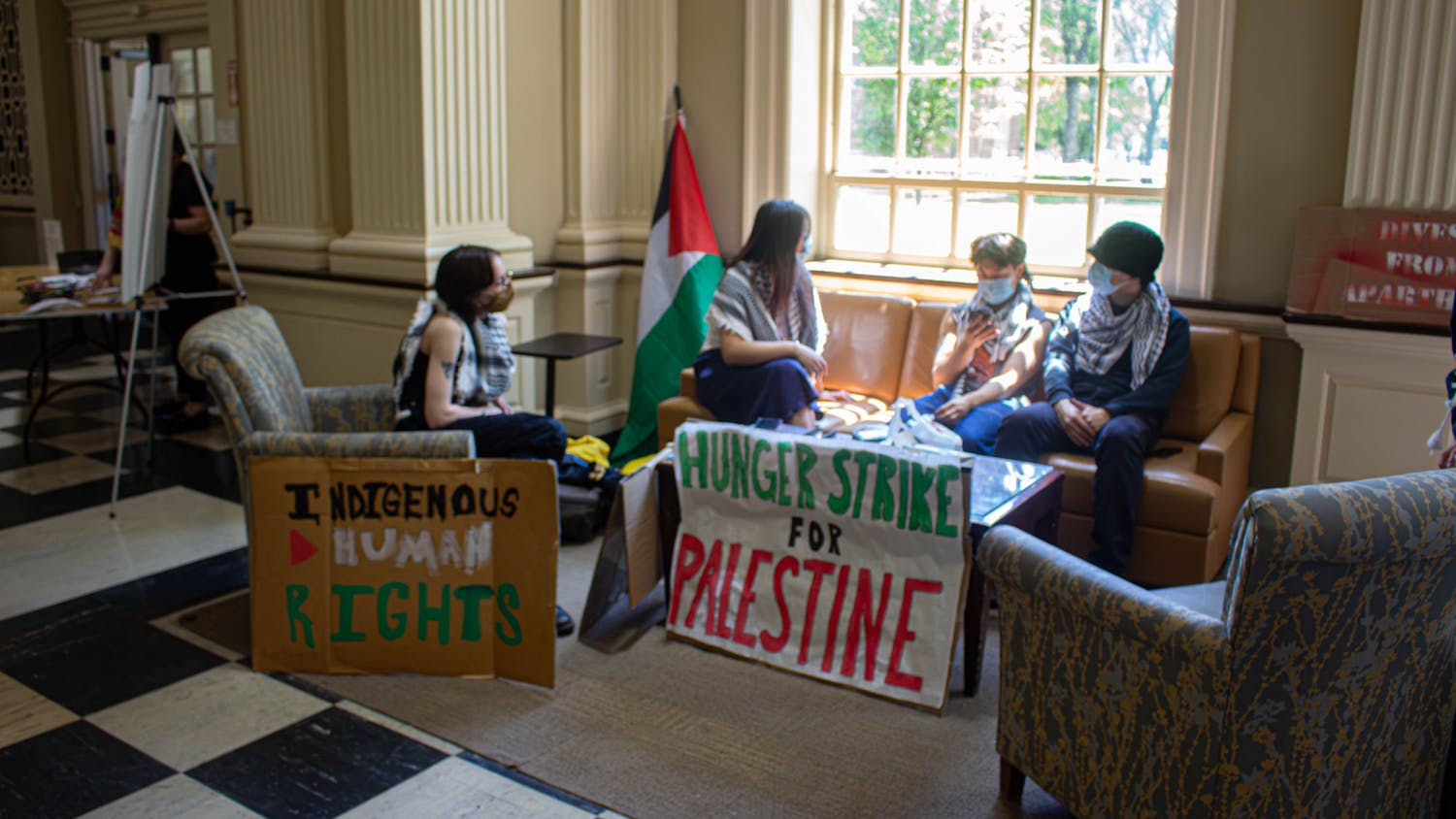With specialties ranging from paleontology to advanced algebra to the economics of infant health, a number of new faculty members have greeted Dartmouth students for their first times this week and more will be taking their places in classrooms across campus over the next three terms.
About 20 new professors and instructors joined the faculty of 12 different departments this fall, although many are currently off-campus doing other work in their field or are not teaching a class during Fall term.
"This is an exciting group of faculty that we have this year," Dean of the Faculty Edward Berger said, expressing enthusiasm about the professorial additions. "These are some very distinguished people."
The faculty additions come from a variety of educational and professional backgrounds. Many are young, but some are experienced instructors wooed away from other schools.
All of the incoming professors who spoke with The Dartmouth said they were pleased to be working at the College, both for the chance to work with intellectually enthusiastic undergraduates and fantastic colleagues.
"The best aspect of coming to Dartmouth is the synergy of teaching whip-smart students, doing exciting research and collaborating with top-notch faculty," new physics professor Robert Caldwell said. "It's like having your cake and eating it too."
Recently appointed earth sciences professor Arjun Heimsath agreed, saying, "The combination of good students, resources and the New Hampshire landscape is enough to make this very exciting," Heimsath said from California, where he will spend the fall.Heimsath will be back for Winter term when he'll teach a freshman seminar about humans and the environment. "I'm pretty psyched about it ... I know I'm going to get a charge out of teaching it."
Several of the new professors, including economics professor Amitabh Chandra, said that they are particularly excited to be here because there are so many other professors in a variety of departments whose research and study interests are related to their own.
"I just thought it would be fantastic to be at a place where many people are working on things similar to what I'm working on," Chandra said.
The government department will welcome the greatest number of new faculty members, with three new professors and an instructor coming on board -- including two high-profile recruits from other universities, Allan Stam and William Wohlforth.
Both Stam -- coming to Dartmouth from Yale University -- and Wohlforth -- stolen away from Georgetown University -- have been awarded the standing of associate professor, a tenured position.
The two scholars were hired to replace senior faculty members lost a couple years ago, government department chair Richard Winters said, adding that he was looking forward to working with both.
"It's an extraordinarily highly qualified group," Winters said.
Stam's departure in particular was bemoaned by students at his former university. According to the Yale Daily News, Stam taught a well-attended "Society and War" class and was one of the university's "most popular professors."
"He's a wonderful person and we're absolutely delighted that we could attract him here," Berger said.
Incoming geography department member Mona Domosh from Florida Atlantic University has also been appointed with tenure, as a full professor, replacing a senior faculty position left open when the department chair was lost to a British university last year.
"So far it's great," Domosh said. "I was really interested in being part of a good geography department. The chance to work with great people across the college is really exciting."
Most of the other new faculty members are young scholars who have recently completed doctoral or post-doctoral work at other universities and were appointed as assistant professors.
"In some areas, we choose to recruit at the junior level, but in certain areas we feel it's necessary to recruit at the senior level either to build a senior faculty ... or in some cases we'll build in a given area by recruiting senior faculty who are a 'sure success,'" Berger said, explaining the way in which the College hires new professors.



